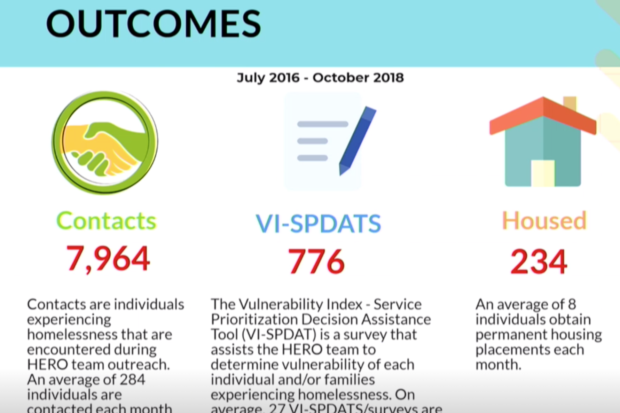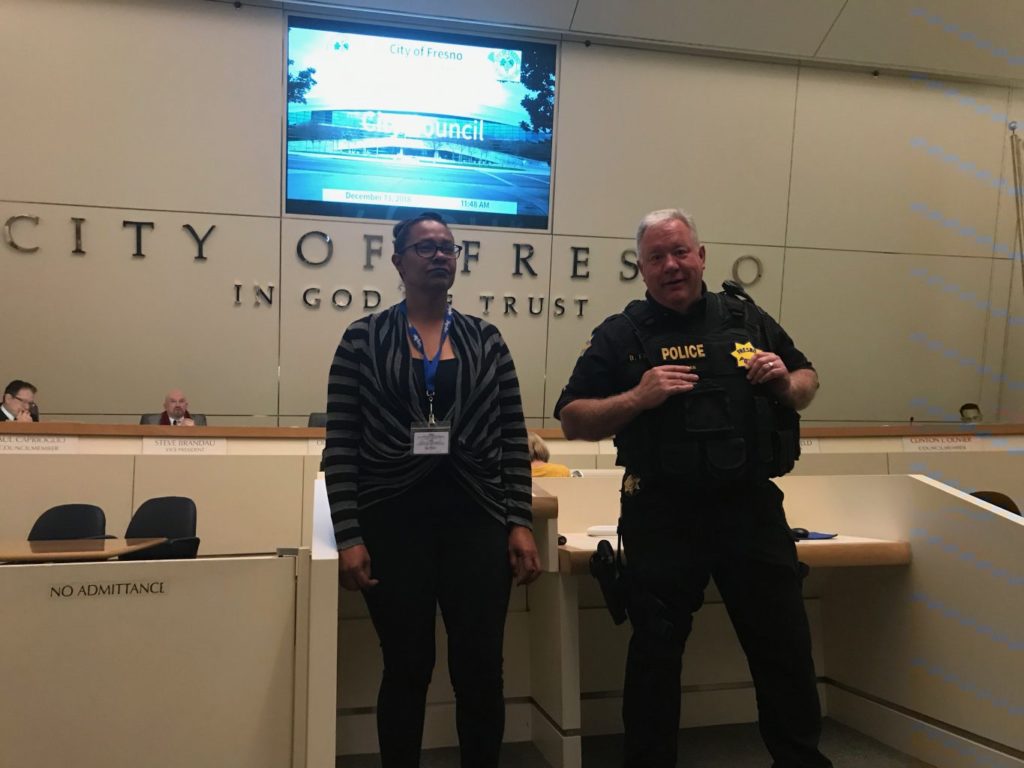
By Mike Rhodes
The Fresno City Council voted, at its last meeting in 2018, to do a financial audit of the money it is spending on homeless services. Council members Steve Brandau, Paul Caprioglio and Luis Chavez introduced the motion that will look into the funding given by the city to homeless service providers.
Earlier in the day, the Council allocated $420,000 to the HERO Team, which is coordinated by WestCare. The HERO Team sends workers (to where the homeless are) to talk with the homeless about how to help get them off the streets. Al Williams, who has been homeless for many years, was helped by the HERO team and now has housing.
The Fresno Police Department (FPD) Homeless Task Force, which for the most part tells the homeless to move on, issues citations for minor infractions (e.g., jaywalking, littering) and facilitates the destruction of their property, got $694,000 in 2018. The FPD also received $9.4 million in 2018 to respond to service calls related to the homeless.
At one point during the City Council meeting, Captain Burke Farah was asked to come up to the podium. Farah, who is head of the FPD Homeless Task Force, had on a bulletproof vest and a large gun at his side. A representative from the HERO Team was asked to stand next to him. Council Member Brandau asked the audience that if they were homeless who would they be more comfortable talking to. The answer was so obvious that the Council member answered his own question: “If Captain Farah walks up to me on the street, even I will get nervous.”
A couple of months ago, at the urging of Council Member Chavez, the City Council authorized $1 million for a new low-barrier shelter that will provide 200 additional beds for the homeless. This is significant because other homeless shelters have restrictions on who can spend the night. Some are for women only, another is youth only and one is for women who are in abusive relationships. There is a huge need for a homeless shelter that has low barriers and is open to all.

There were some voices at the City Council meeting who were not convinced that things were moving in the right direction. Dez Martinez, for example, questioned why some money does not go to grassroots groups that are doing the same work as the HERO team but getting no help from the city.
Martinez, who is the founder of the We Are Not Invisible foundation, said that $420,000 is a lot of money and some of that should be given to groups with lower overhead who are doing the exact same thing—working with the homeless to help get them off the street.
The HERO team, according to statistics presented to the City Council, gets eight homeless people into housing a month. Martinez thinks grassroots groups can do at least that well and would be able to do more with some assistance from the city.
Nancy Waidtlow, the founder of Dakota EcoGarden, which provides housing for the homeless at no cost to any government entity, also spoke about the importance of having multiple options available to help get the homeless into housing.
If the City of Fresno is serious about ending homelessness in Fresno, looking at the spending is a good place to start. Here is a suggestion: Include the FPD money spent on homelessness in the financial audit. After all, the FPD is getting the vast majority of the money being allocated for homeless services. Now is a good time to question the wisdom of spending so much money for something that hurts and does not help the homeless.
*****
Mike Rhodes is an independent journalist and author of Dispatches from the War Zone, which is about homelessness in Fresno.
